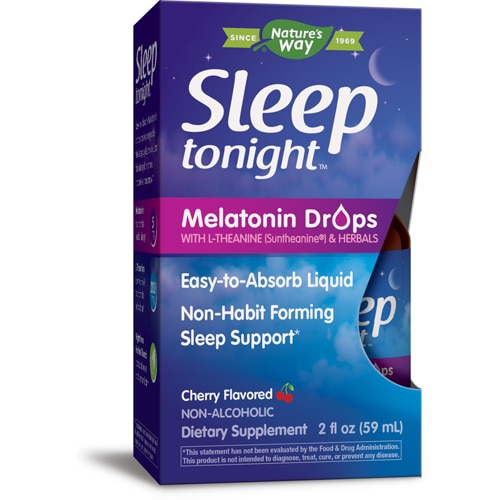From encounters with inanimate objects to falling down flights of stairs, our dreams can run the gamut from strange to petrifying—with a whole bunch of joy and wonder in between. But before you brush off your dreams as arbitrary experiences, know this: dreaming can illuminate what doesn’t always surface in your waking hours.
“A central function of dreams is to allow us access to thoughts and feelings we may not be aware of,” says President of the American Psychoanalytic Association, Dr. Mark Smaller. “One of Freud’s greatest discoveries was that tiny elements of your dreams can point to big issues. A lot of information gets condensed into a small detail.”
And such details can be immensely important. Recent research, which was presented at the American Academy of Neurology, indicates that acting out one’s dreams through kicking, talking, and jumping may be a sign of dementia, while anecdotes about dreams that prophesize cancer, tuberculosis—even impending heart attacks—have merit.
In other words? Dreams may be a window into your physical and mental health—and may be able to alert you to symptoms worth your attention.
With that in mind, here are eight things your body may be telling you about your well-being:
1. You may have a fever
Can you recall only slices of terrifying dreams, or have you woken up thrashing around in bed? Check your temperature. The Mayo Clinic reports that colds and flus can trigger nightmares—particularly if you have a fever. Why? Temperature impacts the way your brain operates, and higher temps can engender night terrors.
2. You could be getting your period
Bloating, cramps, irritability—women are well-versed in premenstrual symptoms. But have you also noticed an increase of odd and intense dreams during this time of your cycle as well?
You’re not alone. During post-ovulation—or PMS—hormones react with brain chemistry, rendering women more prone to bizarre, vibrant dreams before their periods.
3. You may be experiencing anxiety
Between long work days, family dynamics, and quotidian worries, it’s no wonder that we’re a stressed-out society. Ignore those stressors for too long, however, and those concerns may follow you under the covers. Studies have found that anxieties may be reflected in dreams, whether they’re in the form of missing a plane or missing your alarm. Consider it your brain’s way of telling you to slow down—and for good reason: Chronic stress may lead to a host of health problems, including high blood pressure.
4. Your blood sugar could be low
Hypoglycemia—a condition in which blood sugar plummets—can produce a number of symptoms. Among them? Graphic dreams and nightmares (and the restless sleep and night sweats that frequently accompany both). Nighttime hypoglycemia impacts diabetics in particular, especially those who may have injected too much insulin—or the right amount at the wrong time.
5. You may have a heart problem
Frequent nightmares may indicate that you need to get that ticker checked: According to a study of 6.000 participants, an irregular heartbeat upped the risk of nightmares threefold. Those suffering from chest pain, meanwhile, had a seven times higher risk of experiencing bad dreams. One theory is that people with heart problems are also more likely to suffer from breathing problems, which may reduce oxygen levels in the brain and create unsettling dreamscapes.
6. You nay be at risk of Parkinson’s disease
The Parkinson's Disease Foundation reports that individuals with Parkinson’s Disease experience sleep disturbances prior to the onset of movement symptoms—and prior to a diagnosis. What’s more, violent dreams—and the acting out of them through physical actions like kicking—are more prevalent in men with Parkinson’s than women with the same disease.
7. You could be suffering from depression
In the 1970s, psychologists began noting a direct link between chronic depression and chronically disturbing dreams. In 2015, those inklings were substantiated in a study out of Finland, which found that individuals with depression may dream four times as much as their counterparts. Those dreams, dubbed “paradoxical sleep” (in that they disrupt quality rest), are also filled with negative imagery and intense emotions. Why? Depression affects brain chemistry, and, as psychiatrist and dream researcher Dr. Allan Hobson verifies, dreams are impacted by changes in the brain’s neurotransmitters.
8. You could have a sore throat coming on—or more
Psychology Today affirms what many of us intuit: That “detectable changes occur in the body at the onset of disease prior to the presence of recognizable symptoms.” These understated physiological changes are identified by your subconscious and “may be translated into ‘prodromal dreams’”—that is, dreams that mirror the subtle alterations going on with you before you’re reaching for the phone to call in sick.
Indeed, people on the cusp of developing an illness may experience dreams that are “directly relevant to the body’s reaction to a virus,” like a dream about choking that may be indicative of an inflamed throat. Anecdotally, many individuals claim to have had dreams that ultimately pointed to a major illness (like cancer) and spurred them to see a doctor. Such is the beauty of intuition—and the necessity of heeding it.
These statements have not been evaluated by the FDA. These products are not intended to diagnose, treat, cure or prevent any disease.




